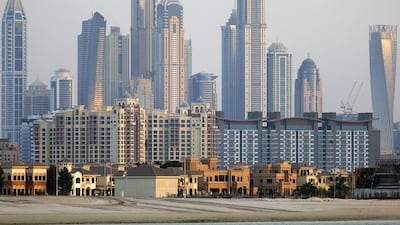For many new expatriates, the first three months of life in the UAE can feel like a red-tape obstacle course. These tips will make the journey to month four much smoother.
UAE residency and ID
• Your passport must have at least six months left to run for UAE residency – check in good time before you arrive.
• Get your education certificates attested in advance and bring them with you, along with birth certificates and a marriage certificate if you intend to sponsor dependants.
• Bring passport photos for you and the family – you’ll need more than you realise.
• Ensure your employer, as your sponsor, has your employment visa waiting at the airport when you arrive. You are landing as a would-be resident, not a tourist, and cannot work on a tourist visa.
• There are three key pieces of ID you need – residence visa, Emirates ID and labour card. You cannot travel outside the country while your residency is being processed.
• Without your residence permit you will find it hard to get started on buying a car or renting a home. Stay patient.
Banking
• It takes time to set up a bank account, so bring enough funds to cover two months – the first month’s salary may be late and early outlays can be high.
• Some international banks allow you to open accounts in advance if you bank there already; others may allow a basic account without residency – you will get a debit card but no chequebook or lending facilities.
• Choose your bank carefully – look at fees, remittance costs, conventional and Islamic banking and whether you can pay utility bills easily with online banking.
• To open a bank account you need a letter of no objection from your employer, your original passport with a residence visa, an Emirates ID and a labour card.
• Credit reporting is new to the UAE and most banks still evaluate your employer when assessing your creditworthiness. Some companies are treated as non-listed companies. This makes it hard to apply for a loan. Check this if you’ll need credit.
Renting
• Take time choosing an area and use a reputable and registered agent. You must pay your rent upfront – either three, six or 12 months’ worth, depending on your contract and landlord. Negotiate hard, and not just on rent – the number of rent cheques and whether your landlord provides maintenance are also negotiable.
• In Dubai, the Real Estate Regulatory Agency has made the Ejari registration of rental contracts mandatory. In Abu Dhabi this is called the Tawtheeq.
• Most UAE accommodation is rented unfurnished, which includes white goods. Second-hand options are plentiful and often half the price.
Utilities
• Utilities (electricity, water, sewerage) come from a single provider (Adwea in Abu Dhabi, Dewa in Dubai, Sewa in Sharjah). You cannot apply without your tenancy contract.
• The two telecoms, broadband and subscription TV companies are du and Etisalat – you are normally limited to one or the other by where you live.
• You can get a basic mobile 90-day SIM card aimed at visitors at the airport without residency, but will need a residence visa and Emirates ID to get a prepaid or postpaid contract from du or Etisalat.
Education
• Waiting lists are long at popular schools, so research in advance and contact them before arriving (and certainly before paying a deposit).
• Once in the UAE, you will need residence visas, birth certificates and immunisation records.
• Fees are high – ranging from Dh2,500 a year to more than Dh90,000. Nurseries can also be expensive (up to Dh60,000 a year). Check the ratio of teachers and assistants to children – this controls both quality and cost.
Driving
• Bring your home country driving licence with you if you are eligible for it to be converted to a UAE licence (about 30 countries are). Otherwise enrol for driving lessons.
• Don’t rush to buy – leasing a car is cheaper in the early months. If you do buy, your no-claims certificate from your home country may be valid. Third-party insurance is mandatory for all drivers.
• Remember, once you have residency, you must apply for a UAE driving licence.
Health care
• Your employer should provide health insurance – but not necessarily for your family. You may need to insure your dependents yourself.
• A health card from the Ministry of Health allows treatment at government hospitals in emergencies for half the cost of a non-card holder.
pf@thenational.ae

